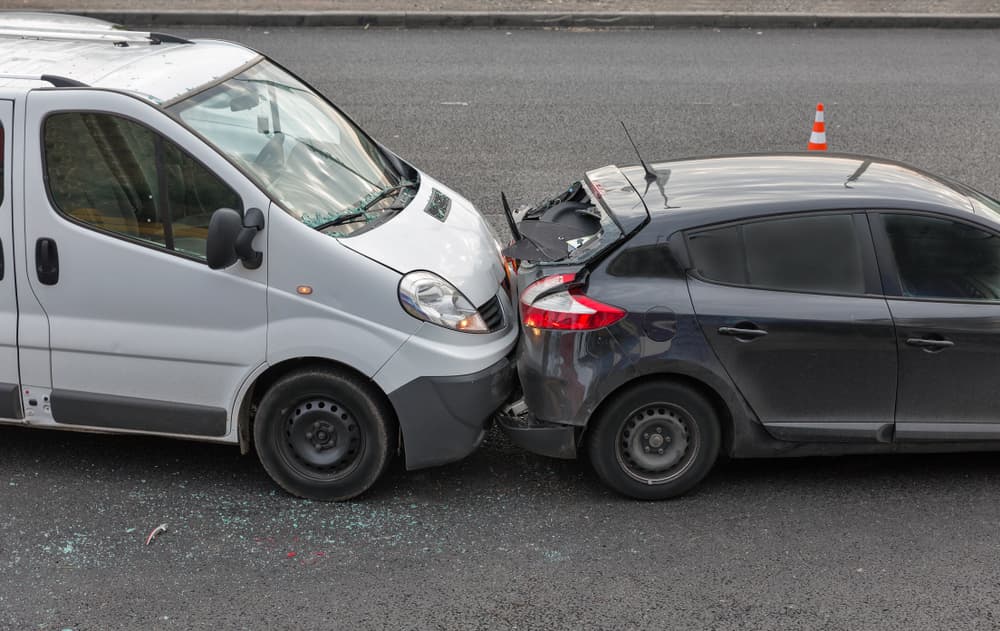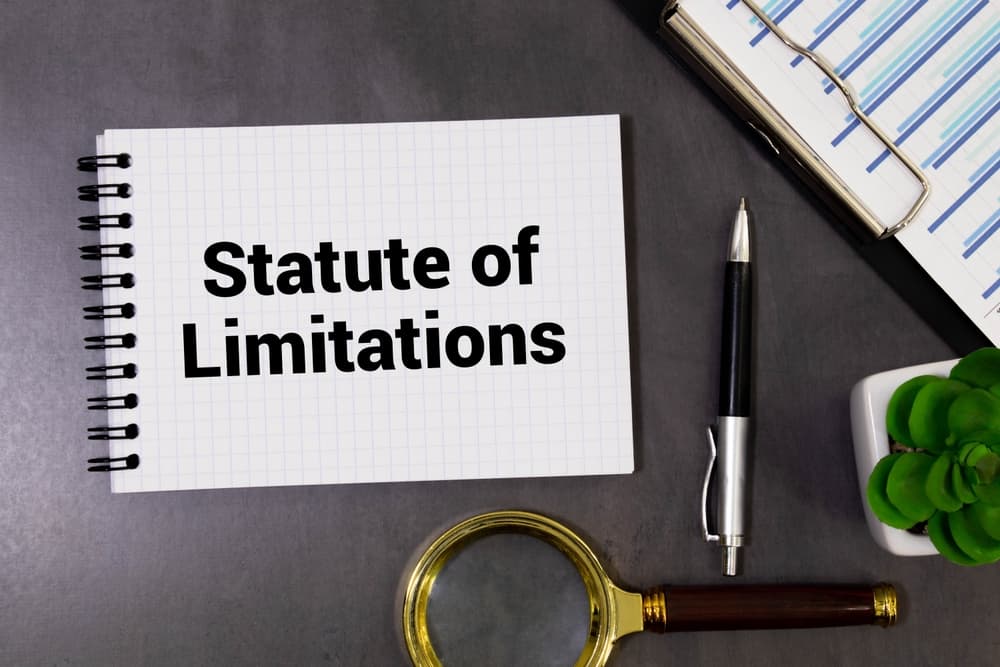Many things can go wrong if a car suddenly pulls into your path. Not only will the accident leave you with a damaged car, you can sustain injuries that require extensive and ongoing care.
After a crash where someone pulls out in front of you, you may wonder who was at fault. If the other driver did not have the right of way and pulled out in front of you, a Chicago car accident lawyer may be able to hold them liable for your damages.
However, determining liability in a car accident case can be complicated, and the legal remedies available to you will depend on the specific circumstances of your case.
An experienced auto accident lawyer will determine liability in your case and pursue a personal injury claim against the other driver’s insurance company to secure the compensation you deserve for all of your damages and losses.
Steps You Should Take After a Car Crash
Obtaining a Police Report
Understanding what steps you should take in an accident where someone pulls out in front of you is essential and can affect your legal rights. If the accident results in injuries or property damage, you should call law enforcement to the accident scene.
A police officer will collect all accident-related evidence, indicate a preliminary fault, and write a police report containing essential information about the crash.
In many cases, failing to contact law enforcement is a violation of your legal obligations as a driver, so reporting the accident to the police is extremely important. Besides, a police report can substantially benefit your car accident case. Your lawyer will often request it when filing your insurance claim. Before leaving the accident scene, the investigating officer will likely provide you with an identification number for the accident report.
Seeking Medical Care
Even if you feel fine, scheduling a medical evaluation with your primary care provider can help you prevent an injury with dormant symptoms from becoming worse. In rear-end crashes, for example, you may not feel injuries like whiplash for hours after the crash, and such injuries often worsen over time. Potentially severe injuries like brain trauma and organ damage may not manifest right away but can kill people if left untreated. Get a checkup within 24 hours after the accident.
If you sustained serious injuries, call an ambulance to the accident scene, and let an EMT check you over. Visit an emergency room if necessary. Seeking prompt medical care is not only the best option for your health, but it creates medical records that serve as key pieces of evidence in your car accident claim.
Maintain Evidence to Support Your Claim
Maintaining documentation of the accident is crucial in supporting your claim and determining who was at fault. Be sure to keep copies of your medical records, proof of lost wages, photos of your injuries or damage to your vehicle, and any other evidence that proves your economic and non-economic losses.
A picture is worth a thousand words, especially in car accident cases, so you should be sure to take photos of the crash from all angles. Taking pictures from as many angles as possible will increase your chances of capturing an image that best illustrates how the accident occurred.
Written witness statements may also be beneficial in your case and provide significant details into how the crash happened and what the damages are from a third-party perspective.
Writing a demand letter is another great way to summarize how the accident occurred and show the value of your case. In your demand letter, you can detail the severity of your injuries, itemize damages, and list all enclosed pieces of evidence supporting your claim. Hiring an experienced car accident lawyer to draft and submit your demand letter will give you the best chances of a fair recovery.
When Should I File a Claim?
If you were in an accident and believe the other driver who suddenly pulled out in front of you was at fault, you should consider filing a claim against their insurer. Never admit fault straight away - instead, consult with a skilled auto accident attorney who can also speak to the at-fault driver’s insurer on your behalf.
Examples of documentation you should bring to your initial consultation with your lawyer include:
- Evidence of your injuries, such as doctor’s reports, scans, or medical center tests.
- Proof of damage to your vehicle, including repair or replacement costs.
- Evidence of loss of wages or earning capacity.
- Proof of any other non-economic damages like emotional suffering.
When Is a Driver Who Pulls out in Front of You at Fault?
Car accidents are not pleasant, and if another driver who doesn’t have the right of way suddenly pulls out in front of you, their negligent actions risk causing an accident.
An example of this is someone pulling out of a driveway. When a driver exits a driveway, they must exercise care and yield to oncoming traffic.
Suppose you’re driving down a residential street at the posted speed limit and you're keeping your eyes on the road. Another driver quickly pulls out of their driveway without warning, and you are unable to react quickly enough to avoid hitting them.
In this case, the other driver will be liable for your injuries and damage to your car.
You have the right of way when traveling down a road unencumbered by stop signs or red lights, which means that any vehicle that enters your lane must only pull into traffic when it’s safe to do so and adhere to all traffic signs and signals.
When another driver pushes into your lane, you can hold the negligent driver liable for failing to yield the right of way and the cost of your losses.
Consulting an experienced car accident lawyer who has successfully handled cases like yours will give you the greatest chance at receiving the full and fair compensation you need to recover as soon as possible.
A driver who pulls out in front of you may be liable for:
- Failing to use their turn signal
- Being drunk or tired
- Pulling out in front of you at a high or low speed
- Intentionally causing the accident
- Being distracted and not paying attention to the road
- Pulling into traffic from a driveway or alley when it is unsafe
- Driving through a stop sign or red light
- Failing to yield to oncoming traffic
- Pulling out in front of you because of road rage
- Crossing in front of you and slamming their brakes
- Using a smartphone or other handheld device while driving
How Do You Determine Fault After a Car Accident?
The legal process of determining who is responsible for your accident, especially when the liable party seems obvious, can feel like adding insult to injury. Determining fault and identifying all liable parties is a crucial step in every car accident case, including rear-end collisions where the rear driver is usually presumed to be responsible.
The basic principle behind determining liability in car accident claims is if a person acts carelessly and causes harm to others, they should pay for their wrongful actions.
Factors used to decide fault in these types of cases may include:
- How fast the at-fault driver was traveling
- Whether they failed to adhere to a stop sign or red light
- Whether either party could have seen the other coming
- Whether the at-fault driver’s car was functioning properly at the time of the accident
If a driver cannot stop in time due to faulty brakes and crashes into another car, they may not be liable for the rear-end accident; instead, the brake manufacturer could potentially be held responsible. The at-fault party is usually the person or entity whose actions most closely contributed to the crash.
To allocate payment to the victim of an accident, courts and insurance companies utilize the concept of fault to determine liability.
Who Determines Fault After an Accident?
Will a police officer or lawyer decide fault?
While police officers commonly respond to the scene of an accident to collect information, make observations, and interview witnesses, they do not have the last word on fault. The traffic accident report that the investigating officer submits will include their opinion of who caused the accident.
Even though their opinion might carry some weight in your claim, it won’t settle the issue with the insurance company entirely.
A lawyer’s job is to collect evidence, form an opinion about fault based on that evidence, and make an argument about who may be responsible for the crash. People usually hire auto accident attorneys to safeguard their best interests. They do not have the authority to make a final determination concerning fault.
Does an insurance company assign liability?
Insurance companies determine fault by assigning adjusters to investigate accidents, collect evidence, and help inform their final decision. An insurance company will use fault to decide whether to pay out a claim to an accident victim and the amount of compensation they should receive. However, the insurance company’s determination is not binding.
If you are unhappy with an insurance company’s decision, in most cases, you may take your case to court. In other words, the final authority on the question of fault is judges and juries. Courts may decide to ignore the opinion of an investigating police officer or overrule the insurance companies’ decision after hearing your evidence.
How is liability determined when multiple vehicles are involved?
When a driver pulls out in front of you suddenly, resulting in a car crash, multiple parties may be involved in the accident. This is often the case in a rear-end crash, where the actions of one driver can cause a chain reaction. If you swerve to avoid hitting a driver who cuts in front of you and, in the process, collide with another car, the driver who pulled out in front of you may bear full responsibility for damages and injuries sustained by you and the driver you hit.
Similarly, if you collide with a driver who pulls out in front of you and a car traveling behind you rear-ends your vehicle when you brake, the driver who performed the negligent maneuver will be held responsible.
Determining liability in car accident cases involving multiple drivers is complicated. Determining who may be responsible for a car accident where additional cars are involved requires the use of expert witnesses and guidance from an experienced personal injury lawyer.
Recovering Compensation If the Other Driver Was At-Fault
When the facts in your case conclude that another driver who pulls out in front of you is responsible for causing your injuries and damages, you are entitled to receive compensation to cover the cost of your losses.
Because so many questions arise in car accident claims, determining how much compensation you will receive will depend on the facts and circumstances of your case. Consulting with a knowledgeable car accident attorney will ensure that you safeguard your best interests.
You have a legal right to seek:
- Non-economic losses like pain and suffering
- Lost income or wages
- Diminished earning cap acting
- Medical expenses for injuries caused
- Any out-of-pocket expenses that resulted from the accident
Your auto accident attorney may also request that the at-fault driver pay punitive damages if the act of pulling out in front of you was intentionally harmful or especially egregious.
Consult an Auto Accident Lawyer Today

Don't try and take on the insurance giants on your own. Consult an experienced car accident attorney as soon as possible after a car crash to give you the best chance at a successful outcome. During your initial consultation, a lawyer will review your case and estimate a fair value for your claim.
A team of exceptional car accident attorneys understands that insurance companies don’t tend to play fair and look for any reason to deny a victim’s claim or pressure them into accepting a low-ball settlement offer.
Let a lawyer help you learn more about your rights and options - call to consult a car accident attorney today.
FAQ: Are You at Fault if Someone Pulls out in Front of You?
1. What should I do immediately after someone pulls out in front of me and causes an accident?
Call the police, document the scene, seek medical care, and gather evidence such as photos, witness statements, and the other driver's information. Reporting the accident to law enforcement can help establish the facts and determine initial fault.
2. Can the other driver be held responsible if they pulled out in front of me?
Yes, if the other driver failed to yield the right of way, they may be held liable for the accident. Factors like disregarding traffic signs, pulling into oncoming traffic, or not using turn signals can indicate negligence on their part.
3. How is fault determined in accidents where someone pulls out in front of another vehicle?
Fault is determined based on evidence like traffic laws, police reports, witness statements, and accident scene photos. Insurance companies and lawyers use this information to assign liability. However, if the decision is disputed, a court may ultimately decide.
4. What role does a police report play in determining fault?
A police report provides an initial assessment of the accident and may include the officer’s opinion on who was at fault. While it carries weight, it is not the final word. Insurance adjusters and courts consider it along with other evidence.
5. Can I still recover compensation if I had to swerve to avoid a car that pulled out in front of me and hit another vehicle?
Yes, the driver who initially caused you to swerve may still be liable for the resulting collision. Liability may extend to any injuries and damages incurred by all parties involved, but proving this can be complex and may require expert witnesses.
6. Is it possible for both drivers to share fault in an accident where someone pulls out in front of another vehicle?
Yes, comparative fault laws may apply, meaning both drivers can share responsibility. For instance, if you were speeding or distracted at the time, you might be partially liable. However, the driver who pulled out unsafely will likely bear a significant portion of the fault.
7. Can I pursue a claim if the other driver’s insurance denies liability?
If the other driver's insurer denies your claim, you can challenge their decision with the help of an attorney. You may also take the matter to court if necessary to seek fair compensation.
8. What evidence should I collect to strengthen my case?
Gather as much evidence as possible, including photos of the accident scene, medical records, repair estimates, and witness statements. A lawyer can help organize and present this evidence to support your claim.
9. Do I need a lawyer if someone pulls out in front of me and causes a crash?
Consulting with a lawyer can significantly improve your chances of receiving fair compensation. An attorney can negotiate with insurance companies, gather evidence, and represent you if the case goes to court.
10. What types of damages can I recover if the other driver is at fault?
You may recover compensation for medical expenses, lost wages, pain and suffering, vehicle repair costs, and other out-of-pocket expenses. In cases involving egregious negligence, you may also be eligible for punitive damages.
11. How soon should I file a claim after an accident?
It is advisable to file a claim as soon as possible. Delays can lead to complications in proving your case and may result in missed deadlines for filing a lawsuit, depending on your state’s statute of limitations.
12. Can I receive compensation if the driver who pulled out in front of me was distracted or intoxicated?
Yes, if the other driver was found to be distracted (e.g., using a phone) or under the influence of alcohol, this can strengthen your case for compensation. Such factors indicate clear negligence and can lead to higher settlements or awards.
13. What if the insurance company offers a low settlement?
Do not accept a settlement offer without consulting with an attorney. Insurance companies may offer low amounts hoping you’ll settle quickly. A lawyer can negotiate on your behalf to secure a fair amount that covers all your damages.
14. Can the other driver be held liable for pulling out in front of me due to road rage?
Yes, if road rage contributed to the accident, this can be considered willful misconduct, potentially leading to a higher compensation amount. Document any aggressive behavior, and inform the police and your lawyer.
15. Who decides the final determination of fault in car accidents?
The final determination can be made by the courts if the parties involved cannot agree. Police reports, insurance investigations, and legal arguments all play a role, but a judge or jury may ultimately decide fault if the case goes to trial.
16. What happens if my injuries worsen after I initially declined medical treatment?
If injuries worsen, seek medical attention immediately. Insurance companies may argue that delayed treatment indicates the injuries were not related to the accident. Medical records showing a connection to the crash are crucial for your claim.
Abels & Annes
100 N LaSalle St #1710
Chicago, IL 60602
(312) 924-7575



